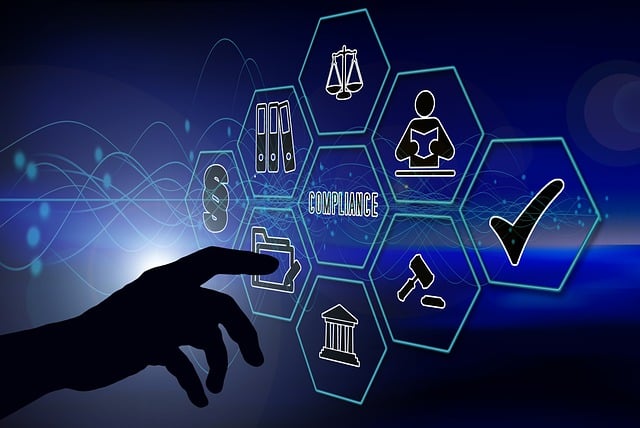Background Checks: Safeguarding Sensitive Premises and Personnel
Comprehensive background checks are crucial for effective premises protection in the security operations industry. These screenings include employment history, criminal records, and personal references to inform hiring decisions. By identifying risks and ensuring accountability, these checks strengthen security posture. Employing thorough employment verification, license checks, and criminal record reviews helps assess individual trustworthiness, professionalism, and suitability for sensitive roles, ultimately enhancing safety and peace of mind for clients. Best practices involve tailored criminal history checks, digital identity verification, and a comprehensive process to ensure only trustworthy personnel gain access through premises protection checks.
In the security industry, where trust is paramount, background checks are an indispensable tool for safeguarding sensitive locations. Thorough investigations into potential employees’ histories play a pivotal role in mitigating risks and ensuring the safety of premises. This article delves into the significance of background checks, exploring essential elements, the process, legal compliance, and best practices to enhance effectiveness in premise protection checks. By understanding these aspects, security professionals can navigate the landscape of risk management with confidence and precision.
- Understanding the Importance of Background Checks in Security
- Key Elements to Include in a Security Personnel Background Check
- The Process: How Thorough Background Investigations Protect Your Premises
- Legal Considerations and Compliance for Premise Protection Checks
- Best Practices for Effective Background Screening in the Security Industry
Understanding the Importance of Background Checks in Security

Background checks are an indispensable component of security operations, playing a pivotal role in safeguarding sensitive premises and personnel. In an industry where trust and vigilance go hand in hand, these checks serve as a robust defence mechanism against potential risks. Thorough screening processes ensure that security guards and staff are reliable, trustworthy individuals capable of upholding the highest standards of integrity.
By delving into an individual’s background, including their employment history, criminal records, and personal references, security companies can make informed decisions. This process helps identify any red flags or character flaws that may compromise the safety of both employees and the premises they protect. Effective background checks foster a culture of accountability and responsibility within the security sector, ultimately enhancing the overall security posture.
Key Elements to Include in a Security Personnel Background Check

When conducting background checks for security personnel, several key elements are essential to ensure comprehensive and effective verification. Firstly, a thorough review of criminal history is imperative, encompassing local, state, and national databases to uncover any past offenses or outstanding warrants. This step is vital for premises protection checks as it helps identify potential risks associated with an individual’s trustworthiness.
Additionally, verifying employment history and previous employers is crucial. Security personnel often interact with sensitive information and environments, so assessing their past roles, responsibilities, and references can offer insights into their reliability and professionalism. Other considerations include checking educational backgrounds, especially for specialized security training or certifications relevant to the role, and examining any relevant licensing or permits. These checks collectively contribute to making informed decisions regarding an individual’s suitability for premises protection duties.
The Process: How Thorough Background Investigations Protect Your Premises

Background investigations are a crucial component of ensuring robust premises protection checks within the security industry. The process involves an in-depth examination of an individual’s background, including their employment history, criminal record, and personal references. By conducting these thorough inquiries, security companies can identify potential risks and ensure that their personnel are suitable for the roles they undertake.
These investigations act as a filter, screening out individuals with malicious intent or a history suggesting unsuitability for positions involving sensitive areas of responsibility. The result is a heightened level of safety and security for protected premises, as well as peace of mind for clients and employers alike.
Legal Considerations and Compliance for Premise Protection Checks

The security industry is heavily regulated, and for good reason—the safety of individuals and sensitive information is paramount. When it comes to premise protection checks, legal considerations are numerous and stringent. Companies must adhere to various federal, state, and local laws that govern data privacy, employment practices, and the handling of personal information during background investigations. Non-compliance can result in significant fines and damage to a company’s reputation.
For premises protection checks, these legal requirements encompass verifying identification, checking criminal records, assessing potential threats, and ensuring adherence to data protection regulations. Security firms must implement robust processes to confirm the identity of individuals accessing restricted areas, employing comprehensive screening methods that go beyond surface-level checks. This meticulous approach ensures that sensitive locations are protected against unauthorized access and potential security breaches.
Best Practices for Effective Background Screening in the Security Industry

In the security industry, where trust and reliability are paramount, effective background screening is a game-changer. The best practices for background checks in this sector involve a multi-faceted approach to ensure thoroughness and accuracy. First, it’s crucial to verify all employment histories, educational credentials, and licenses or certifications through official channels. This step is vital to uncover any discrepancies or false information.
Additionally, criminal history checks, including state and national databases, are essential for premises protection checks. These should be conducted with an understanding of the specific role’s requirements, as not all positions necessitate a full-scope check. Furthermore, leveraging advanced technology like digital identity verification and automated data cross-referencing can significantly enhance the efficiency and reliability of background screening processes in the security industry.
